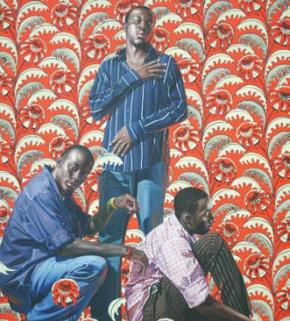Who fears lusosphere?
Walter Filipe, who introduces himself as Jamba Kaji, is a young Angolan that studies in Portugal. He and eight other young people have just published a book of poems entitled Um Abraço Quente da Lusofonia (A Warm Hug from Lusosphere). According to the editor of the book, the aim is to collect “in a single work poetry, feelings and the approach of different countries that make up the lusosphere, but with its own diversity”. As a young entrepreneur, he travelled to Luanda with 50 of the 500 copies produced, certainly in the hand luggage. The same number was carried to Maputo by another participant in the project, Tânia Tomé, introduced by the poet Eduardo White during the release session as “a poem, a living poem that sings and charms”. In that occasion it was announced that the book would have been also released in Cape Verde, Guinea-Bissau, São Tomé and Príncipe, Timor and Brazil.
The release of this book, in the form with which it announces itself, is an important event. This anthology of poems is not sponsored by the Camões Institute, so we cannot say that behind it there is any intention of protecting Portuguese language. This collective work results form the effort of seven young people that live and study in Portugal and have in common, among other things, the use of Portuguese language.

It is not at all accidental that these young people are in Portugal: it is the only place where Portuguese language, or the group of Portuguese-speaking countries, can be thought as a whole. And this can be justified, for example, because there a genealogy of similar ideas already exists. More than 50 years ago, Mário Pinto de Andrade, at that time a student of Philology in Lisbon, collected the poems composed by his colleagues, among whom Francisco José Tenreiro, Noémia de Sousa and Agostinho Neto, in a book entitled Antologia Poética de Expressão Portuguesa (Poetic Anthology of Portuguese Expression). The inspiration came from Paris where, four years before, in 1949, Léopold Sédar Senghor had published the first anthology of black poets.
It is not necessary to explain Mário de Andrade’s intentions. Behind poetry there was a political project for the formation of political movements that would have brought to the independence of Portuguese colonies. Since that time, Lisbon has remained the centre of lusophone identity, because of the exaltation of the empire before, and for the celebration of lusosphere now. It is undeniable that in Lisbon there is a natural approximation of Portuguese-speaking people, not Portuguese of nationality, even when they do not share the same race and culture. National differences reduce face to the discrimination which all are submitted to. And it makes full sense to think about this reduction as a need for resistance to discrimination, because the metropole turns homogeneous all the ex-colonized, grouping them in the categories of “nigger”, “black”, “immigrant”.
I became sensitive to this issue due to my personal experience. It was in Lisbon that I began to think about myself as black and African, something that until the time I left from Luanda I was very little worried about. In Lumiar residence, with students from other origins (Santomeans, Cape Verdeans, Bissau-Guineans and Mozambicans), I lived moments of so-called lusophone brotherhood. During parties we all danced kizomba and during saraus we sang Apili, Dju di Galinha, Eliza Gomara Saia, Sodade. So I felt a sort of amazement when, years later, travelling around Cape Verde and Guinea-Bissau to gather material for writing O Fazedor de Utopias (The Maker of Utopias), I was not feeling any particular affection for speaking the same language – obviously when I met people who didn’t mind talking.
However, the debate behind lusosphere feeds itself with the fiction that the simple fact that there is a common language among the peoples who, in ancient times, formed Portuguese colonies improves a feeling of brotherhood. This idea is possibly based on the anthropology of the colonial times, more precisely on what is known as the Sapir-Whorf hypothesis: the systematic relationship between the grammar structures of a language and the way a person who speaks it intends and interacts with the world.
The work of the Brazilian anthropologist Gilberto Freyre, who studied in various American universities, among which the Columbia University, with Frantz Boas and Ruth Benedict, is also imbued with this principle. In his book The Masters and the Slaves, a masterpiece of social sciences as well as of Brazilian imagery, Freyre explains that the Brazilian result from the cross among the Portuguese, the African and, in a smaller amount, the indigenous peoples. The miscegenation is celebrated, despite the violence the whole process was built on, as a brotherly meeting among peoples of three continents in Brazilian tropical regions. Salazar, who was a scholar and a man of culture, immediately interested himself in the ideas of this theorist: they were the best way to explain the Portuguese colonialism, contrasting it with the French and the English one. With a propagandistic aim, he invites Gilberto Freyre to visit Portuguese colonies. There was the expectation that Freyre would have come to the same conclusions as those he had reached about the Portuguese in Brazil. The reflections were released as a diary in the book Aventura e Rotina (Adventure and Routine).
Mário de Andrade, Amílcar Cabral and other nationalists committed themselves to the deconstruction of this myth as a way of contesting the colonial domination. The Estado Novo went on until the end justifying its point of view. In order to shrink from the more and more thunderous international community critics it talked no more about colonies, instead about overseas provinces, presented as truly multiracial societies. But the nationalists from lusophone Africa lost the ideological battle, since the greatest part of the luso-tropicalism ideology still leavens the Portuguese debate about colonial past. Lusosphere was built upon this concept, celebrating the meeting between colonized and ex-colonized, the miscegenation, as if in its subtext had not existed silences, acquiescence, violence, intolerance, genocides and the sunset of many cultures, too.
 Photo by Miguel Seabra Lopes, Mindelo.
Photo by Miguel Seabra Lopes, Mindelo.
All those who think that the appropriation of such debates is confined only to politics and that its purposes are easily discernible in the relations between Portugal and its colonies, particularly in that which turns commercial exchanges privileged, are wrong. This debate has already infiltrated some academic environments. Boaventura Sousa e Santos rises in the tradition of Gilberto Freyre when, in Entre Próspero e Caliban: Colonialismo, Pós-Colonialismo e Inter-Identidade (Between Prospero and Caliban: Colonialism, Post-Colonialism and Inter-Identity), he rescues some aspects of the Brazilian master’s theory, filtering it through the slang of postcolonial literature, to state that only a Portuguese, taking advantage of his subaltern position in Europe, would be cut out to realize in the tropics an experience of approximation with the peoples he once dominated.
The anthology of poems of the young lusophone can be set on this line. We are not in front nor of a political neither of an academic project which evident aim is the recycling of colonial past. We are instead in front of the singular effort of a group of young lusophone people, probably out of anyone of those circuits, who do not stop being indifferent to the pragmatic dimension that the evocation of the word “lusosphere” confers, above all in a Portuguese context, still fascinated by its past and anxious of listening to blandishments from the mouth of the ex-colonized.
From the book Poligrafia: das páginas de jornais angolanos (Poligrafia: from the pages of Angolan newspapers), Casa das Ideias.